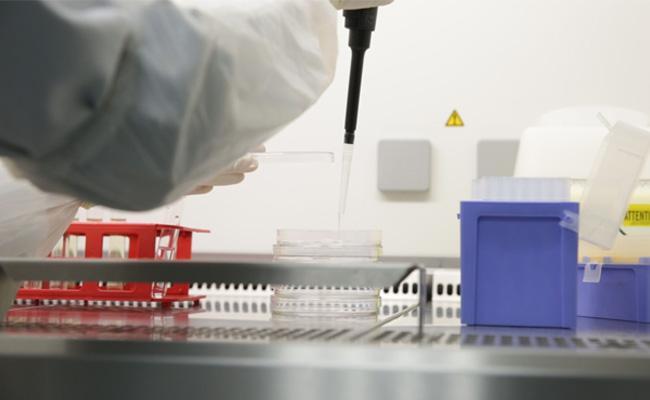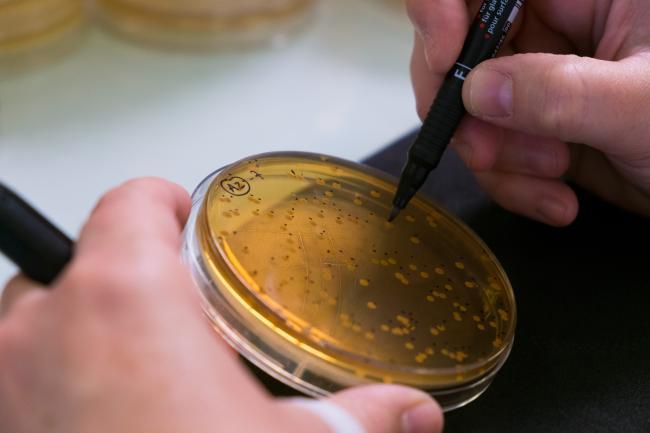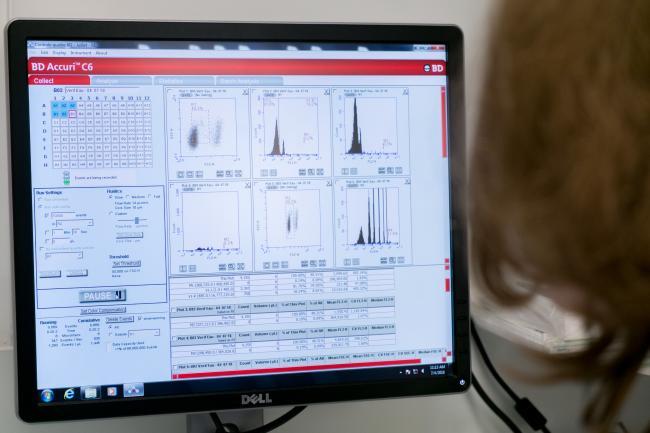Origin and safety of the strains
Certification
Probiotic micro-organisms intended for human consumption must be entirely harmless and thus present no risk of toxicity.
This principle has been used to establish lists of such micro-organisms, historically considered as safe for humans: they are known as micro-organisms with QPS (Qualified Presumption of Safety) status in Europe, and GRAS (Generally Recognized As Safe) in the United States.
The lists include a certain number of genera, species, and even strains of probiotic bacteria.
All the bacterial strains used by PiLeJe to prepare its health solutions come from groups of bacteria with QPS and/or GRAS status.

« Not antibiotic resistant »
When present in the intestine, the probiotic must not either itself or via its action on other intestinal bacteria provoke any bacteriological resistance to antibiotics used in treatment: this is the “not antibiotic resistant” criterion.
Registration with the French National Collection of Micro-organism Cultures (Collection Nationale de Culture des Microorganismes - CNCM)
Each probiotic strain selected by PiLeJe is studied to define its intrinsic properties (morphology, resistance to humidity and heat, growth conditions, etc.) and genotypes (bacterial DNA sequencing).
Once analyzed in this way, the strain is fully documented and is registered with the French National Collection of Micro-organism Cultures.
Registration ensures that the strains included in a dietary supplement are fully traceable.
Why such strict selection criteria?
The various genera and species of bacteria that are potentially usable as probiotics include a large number of bacterial strains. Each has its own attributes, relating either to its potential as a “health target” or to its culture conditions, sustainability, stability, adhesion to the intestinal mucosa in order to act, etc.
Not all bacterial strains thus have the right properties for use in a dietary supplement.
PiLeJe selects the strains best suited for inclusion in a particular formulation only after completing our battery of technical tests.

Gastro-resistance
To benefit the host, a probiotic must be capable of withstanding the conditions found in the digestive tract and of reaching the small intestine and/or the colon in a viable form.
To check the resistance of strains to the different obstacles that the probiotics have to overcome during transit, we use in vitro models that reproduce the conditions (pH, digestive-enzyme secretion and peristalsis) found in the different compartments of the digestive system: the stomach, intestine and colon.
These focused studies enable us to select, for instance, strains that withstand the gastric compartment (resistant to an acid pH and to enzymes such as pepsin) or the intestinal compartment (resistant to bile salts and pancreatic enzymes).

Adhesion to the intestinal mucosa
Probiotics are different from other “active” products in that they are not absorbed by the body. They act locally, and to do so, must adhere to the intestinal mucosa and “mingle” with the host’s microbiota (the intestinal flora already present, sometimes called the commensal flora).
This ability to adhere to cells in the intestine enables probiotics, like the microbiota, to interact in their turn with the intestinal immune system and the enteric nervous system.
The better the probiotic strain can adhere, the longer it spends in the intestine and the greater its potential for interaction with the organism.
In vitro tests are used to select the probiotic strains that are best at adhering to the intestinal mucosa.

Sustainability and stability over time
Bacterial strains are fragile, so their growing conditions must be controlled and the conditions in which they are sustainable in different media must be known.
A range of experiments is carried out: for instance, placing bacterial strains in ageing ovens to study their sustainability criteria over time.
The data collected influences the choice of excipients, potential additional ingredients and dosing materials. All must be compatible with the probiotic strain, i.e. must not affect adversely either its action or its stability over time.

